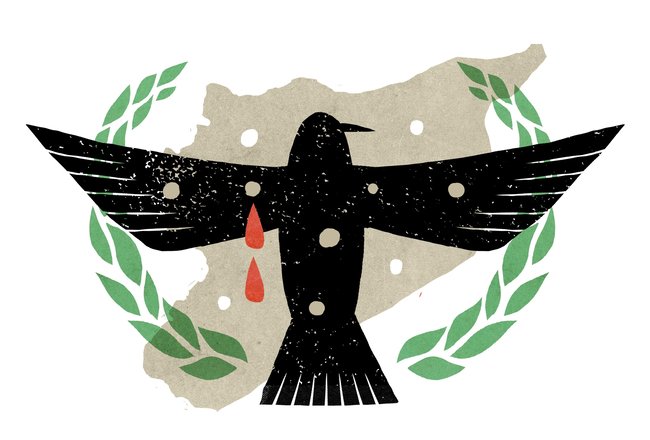
From Aaron David Miller, the International Herald Tribune: The Arab League suspends Syrian membership; the king of Jordan calls for Bashar al-Assad’s departure; Turkey appears ready for more aggressive anti-Assad measures; defectors from the Syrian Army are attacking regime targets. And all the while the regime continues killing its people with impunity.
Now is the time for America to step up and lead a NATO military intervention to topple the Syrian regime?
No. It Isn’t. Military intervention now will not work. Do not look to Libya for lessons on how to overthrow this dictator. If anything, the Libyan model is a cautionary tale, and potentially a whole lot of trouble if the lesson is ignored. . . .
Libya isn’t Syria. But it was low-hanging fruit — at least from the perspective of outside intervention. A big empty place roughly the size of Alaska with a long coastline, lacking sophisticated air assets or air defenses, and run by a regime of thugs and clowns, Muammar el-Qaddafi’s Libya offered a reasonable prospect for NATO military success.
It still took eight messy, bloody months to topple Qaddafi. Indeed, there were moments when even the champions of intervention in the Obama administration wondered whether it would work. . . .
Then there’s the problem of assembling an international coalition. Yes, the world is outraged and Syria is under sanctions and isolated. But the prospects of mobilizing the United Nations Security Council to sanction a NATO intervention are nill. The Russians and the Chinese are dead set against it; the French, British and Americans are squeamish, and for good reason. . . .
A coalition of the partially committed would not work. Once military actions began, there would be no turning back. Escalation would be inevitable against a regime that will use every instrument it possesses to survive. There’s no room for encouraging the opposition and then not being prepared to support it.
Last week, the U.S. ambassador to Iraq apologized to the Shia community for the failure of the United States to do more in 1991 after it encouraged Shia opposition to Saddam Hussein. We do not want that to be repeated. . . .
Inaction by the international community while a brutal regime kills its people has its costs, but so does big-footing by great powers. One thing we know about discretionary, poorly conceived military action is that getting into such conflicts is always a lot easier than getting out.
Aaron David Miller, a former U.S. Middle East negotiator, is a scholar at the Woodrow Wilson International Center for Scholars and author of the forthcoming book “Can America Have Another Great President?” (graphic: Christobal Schmal/IHT)
Image: iht%2011%2020%2011%20Syria.jpg
